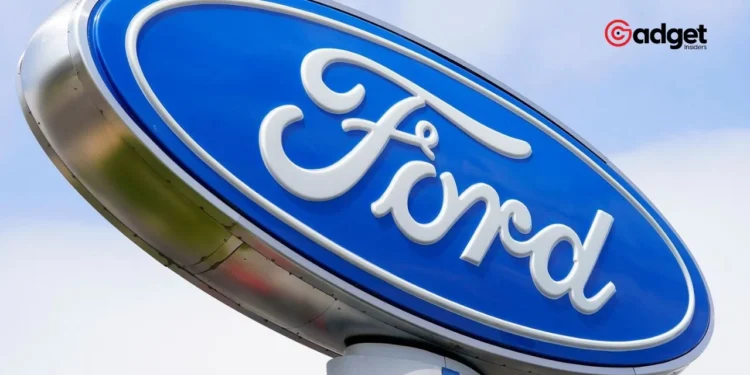Federal authorities are intensifying their scrutiny over the Ford Motor Company following its recent method to address safety issues in thousands of its SUVs. The Michigan-based automaker’s approach to rectifying problems in nearly 43,000 Bronco Sports and Escapes has sparked significant concern among regulators and safety experts.
The key issue? A design flaw that could potentially lead to under-hood fires.

The Spark of Controversy: Fuel Injector Flaws
In April, Ford issued a recall for its Bronco Sports and Escape SUVs after discovering that fuel could leak from the fuel injectors onto the hot surfaces of the engine, significantly increasing the risk of fires.
This recall was prompted by reports of gasoline or vapor leaking due to cracked fuel injectors, with the company confirming five incidents of under-hood fires. Fortunately, there have been no reported crashes or injuries associated with these defects.
Ford’s Fix: A Questionable Solution?
Ford’s proposed solution involved installing a drain tube to channel leaking gasoline away from the engine’s hot surfaces, coupled with a software update designed to detect any drop in fuel pressure.
If such a drop is detected, the software is programmed to shut down the high-pressure fuel pump and reduce engine power to cool the engine compartment. However, this remedy has not convinced the U.S. National Highway Traffic Safety Administration (NHTSA), which has openly criticized the effectiveness of these measures.

NHTSA’s Standpoint: Inadequate Measures
The NHTSA has expressed significant reservations about Ford’s approach, labeling it insufficient and not addressing the fundamental issue. “The remedy program does not address the root cause of the issue,” stated the NHTSA in a recent communication with the company.
The agency is concerned that the measures do not preemptively replace the defective fuel injectors before they fail. This could potentially leave drivers in precarious situations, such as having to exit freeways at reduced speeds, thereby increasing the risk of accidents.
Ford's recall of Bronco and Escape raises "significant safety concerns" federal regulators say https://t.co/31kIWMntvB
— CBS Evening News (@CBSEveningNews) May 10, 2024
Echoing Safety Concerns
Supporting the NHTSA’s apprehensions, Michael Brooks, executive director of the nonprofit Center for Auto Safety, criticized Ford’s actions as merely a “Band-aid type recall.” Brooks argued that the automaker is attempting to avoid the costs associated with a more comprehensive fix.
His concerns highlight the broader implications for driver safety and underline the need for a more definitive solution to prevent potential accidents.
Ford’s Response and Ongoing Investigation
Despite the criticism, Ford maintains that it is actively cooperating with the NHTSA to resolve the issue. The company also noted that the current recall builds upon a similar recall from 2022 and that the proposed remedies have undergone testing on vehicles affected by the previous recall.

What’s Next for Ford?
The NHTSA has requested detailed information from the brand regarding the testing and efficacy of their proposed fix, other considered remedies, and a cost-benefit analysis of the chosen approach.
They are also seeking clarity on the environmental and safety compliance concerning the fuel leakage and the operational impacts of the software changes. As Ford prepares to respond by the NHTSA’s June deadline, the automotive community and its consumers will be watching closely.
The outcome of this investigation could necessitate further action from Ford to ensure the safety of its vehicles, aligning with federal standards and safeguarding public trust in its commitment to safety and reliability.










